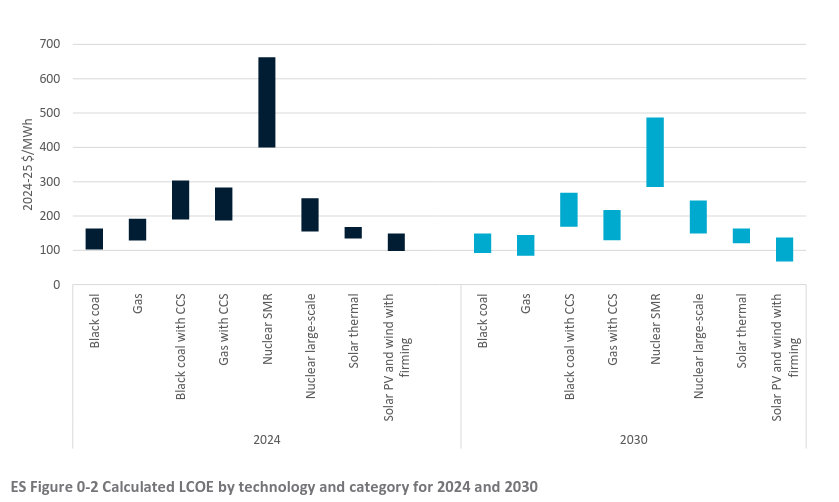Nuclear always comes up when discussing the energy transition but renewables seem to be a much more popular consideration. Can nuclear energy help us towards a greener future or is it a long dead dream?
I think a nuclear future is definitely greener than our gas, oil and coal based present. But wouldn’t a renewable energy future be much, much better than either?
I’ve heard the argument that nuclear can provide a consistent base, which I suppose is true. But you need a way to flex the remaining renewables you have still, since nuclear can’t turn up and down as easily as fossil fuels. Which to me says, nuclear + renewables requires the energy-flexing mechanisms that would also make pure renewable possible.
So my take is, I think it might help reduce warming somewhat, but really we should be aiming for 100% renewables.
Nuclear is a heated topic and thought of informing myself more about it in order to have an opinion. I’m still in this process and the more I learn, the more I tend to see it as the wrong path.
Briefly the main issues of nuclear I can think of right now, are (btw most are mentioned in other comments): too expensive & too time consuming to build and to decommission old ones, their lifespam, as well as the waste problem. I didn’t mention the danger of an accident because I believe there is a lot of misinformation about it. For example here is a post I made about Thyroid cancer and Fukushima in the Medicine community that I believe highlights some relevant issues. For Fukushima specifically I could suggest also this video for details on what happened and this recent paper titled Fukushima Contaminated Water Risk Factor: Global Implications.
A few article links:
-
The shared history of oil and nuclear energy - The Maastricht University History Department Blog
-
NuScale ends Utah project, in blow to US nuclear power ambitions - Reuters
-
EU Scientists and Politicians Clash Over Gas and Nuclear as ‘Sustainable’ Investments - desmog
-
A Closer Look at Two Operational Small Modular Reactor Designs
For videos, I could suggest:
-
This video from Real Engineering talks about Why Germany Hates Nuclear Power and also talks about France.
-
This free video course is quite understandable for people that do not have a science background, at least as far as I have gone through it.: Nuclear Energy: Science, Systems and Society - MIT
This is a great response. Nuclear plants are expensive to build, and the waste is difficult to deal with.
What it doesn’t touch on is the functional aspect - the advantage (and disadvantage) of nuclear power is that it provides a very steady “base load” power supply, something renewables struggle with.
Regions with good access to natural solar and wind resources throughout the year, as well as those fortunate enough to have geothermal or hydro power (which has its own environmental drawbacks) can provide stable sustainable power supplies with minimal storage, but when the goal is zero emissions, getting that last 10-20% reduction at scale in many locations is incredibly difficult.
Having a power supply that’s always providing a steady stream of power, even when the Sun and wind are down, can dramatically reduce the amount of storage you need. For places where it’s appropriate, nuclear can help fill this void, but only after getting like 90% of the way to the finish line with renewables.
What it doesn’t touch on is the functional aspect - the advantage (and disadvantage) of nuclear power is that it provides a very steady “base load” power supply, something renewables struggle with.
You are correct. I only talked about nuclear, I didn’t do a comparison.
About the base load for starters I could suggest the following article:
That’s not a bad article, but it’s largely focused on debunking claims about renewables on today’s grid (e.g., the false claims that they have somehow been responsible for blackouts in CA and TX).
I generally agree with the articles points, but what I’m talking about is a future grid with 90%+ renewable generation and limited geothermal/hydro resources.
It’s purely a hypothetical at the moment because no one has come close and technology could advance quite a bit before the grid even reaches those limits.
That said, based on today’s technology, under the right circumstances, nuclear can provide a cost effective means of closing the final gap in reaching zero-carbon electricity, but only AFTER we do the bulk of the work solving the other 90% of the problem which is installing more renewables and storage.
-
In the US context, it is nice that we already have a lot of nukes operational. They provide like 30% of our energy and it is cleaner energy than fossil fuels.
But nukes are uneconomical when compared to wind and solar. They are slow to build and they tend to cost way more than projections. Wind and solar deployments are predictable and don’t have overruns.
So keep the nukes we have, but invest in more solar and wind
I find it ironic you are calling nuclear energy / nuclear powerplants “nukes”. In my understanding nukes go boom. But English is not my main language, so it’s probably that.
It will help in that it produces a million times less waste than coal. That is so much less it’s less radioactive. And the waste dump is smaller.
Bonus: the only emission is water so it doesn’t slowly make the planet uninhabitable.
Unfortunately current politicians would rather make murder machines
Nuclear was the correct answer, when climate change entered the scientific community in the 50s, it was the correct answer when it allowed France to nearly hit net zero for energy in the 70s, and it was the correct answer when the UN agreed we were all going to die unless we stopped burning all fossil fuels in the 90s.
The problem is that ever since the 2010s it’s been outpaced by improvements in wind and especially solar. Not coincidentally this is about the time that oil and gas companies stoped campaigning against Nuclear and suddenly started insisting that it was the only possible alternative.
It makes sense to keep what we have running and do some refurbishments, but in a world where the primary limit on the amount of solar and wind we can build is funding its high cost alone means going nuclear means far less clean energy, to say nothing of the decades more CO2 output from the coal and gas plants running in the years it would take to build such plants compared to the months it takes for a new solar or wind farm.
its really expensive and really slow to build, so of you want to keep burning fossil fuels, its great for delay/distraction.

https://www.csiro.au/en/research/technology-space/energy/Electricity-transition/GenCost
edit: better chart screen cap
Just pointing out, nuclear is on your chart twice - one significantly different from the other. “Nuclear - Large Scale” costs overlap most other technologies shown.
…so of you want to keep burning fossil fuels, its great for delay/distraction.
Far from it. I believe that fossil fuels should go the way of the dodo. It’s unfortunate that nuclear is depicted as some sort of “Grim Reaper” energy because of Three Mile Island, Chernobyl and Fukushima. I find it strange that same fear and paranoia surrounding nuclear isn’t also applied to fossil fuels and petrochemicals. Correct if I’m wrong but it seems that Exxon Valdez and Deepwater Horizon did far more damage than Chernobyl ever could.
Chernobyl and the Exxon Valdez are pretty comparable in scale and scope the environment, though Chernobyl certainly had a lot more human casualties.
That being said I’m not sure public opinion actually has had that much of an impact. If they wanted to, the same companies who keep building new oil pipelines no matter how many protesters need to be beaten into submission by cops could absolutely have pushed through adding on some more reactors to existing plants. The problem is that while profitable, nuclear is not as profitable as heavily government subsidized oil and gas much less solar, and so no one but some of the public really wants to put a lot of money into it.
It mostly lags behind because building it out is a deeply drawn out process that requires the type of consistent unsexy foresight governments don’t exactly thrive in expressing.
Nuclear is much more green than any fossil fuel based energy. It’s also much more stable than renewables because it does not rely on the sun, wind, tides, etc. Renewables need more development around grid-scale storage. This is where nuclear can be a good transitional stop to an all-renewable energy future.
There are drawbacks to nuclear, of course, storage of waste material is chief among them.
I was wondering when someone was going to mention the waste. I don’t like the destruction that nuclear waste passes on to our descendants for that many years. That’s being a bad ancestor.
Nuclear power plants are expensive to build, maintain, and operate. It makes me wonder how many sodium ion backup batteries that money could buy.







